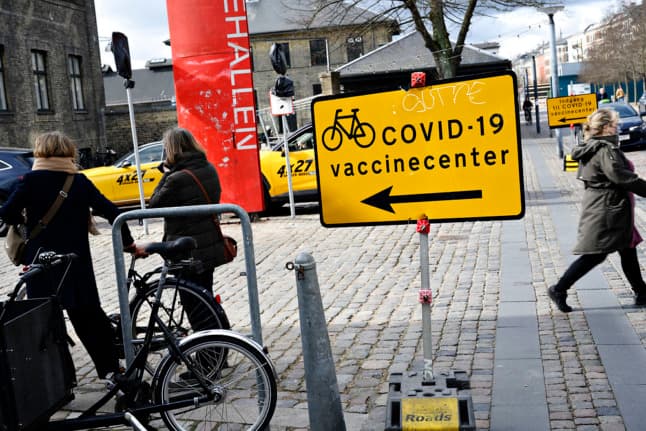Covid-19: Data suggests Danish epidemic 'becoming stable'

Health Minister Magnus Heunicke said on Tuesday that the Covid-19 epidemic in Denmark is showing signs of becoming ‘more stable’ after weeks of growth, with new data suggesting a flat level of transmission.
The reproduction rate or R-number for the virus is 1.0 according to latest calculations, Heunicke noted in a tweet on Tuesday. An R-number over 1.0 means that 10 people with the virus on average pass it on to more than 10 others, meaning the epidemic grows.
If the number is under 1.0, the epidemic declines.
The metric has been over 1.0 since mid-October, meaning an increase in the epidemic throughout that time.
Heunicke stated in the tweet that growth is now retreating and there are signs of a stable epidemic in Denmark.
“Other key numbers such as incidence, positivity rate etc suggest that we have a more stable epidemic,” he wrote.
“This could be because of factors including immunity from vaccinations and boosters, with one in seven people over the age of 12 now having had a third dose,” he added.
The R-rate is subject to a lag and gives an impression of the status of the epidemic around 10 days ago.
Earlier in November, Denmark reintroduced coronapas Covid-19 health pass requirements and this week saw the return of mandated face mask use in public transport and retail settings.
The country has also begun vaccinating children aged 5-11 after this was approved by health authorities last week.
Tuesday’s daily update saw an additional 4,148 new Covid-19 cases registered, broadly in line with daily totals over the last two weeks.
The positivity rate was 2.58 percent, with 160,583 tests conducted. 433 people are currently admitted to hospital with the virus, 13 fewer than on Monday.
Infectious disease agency State Serum Institute (SSI) is meanwhile investigating nine suspected cases of Covid-19 infection with the new Omicron variant, in addition to the two already confirmed in Denmark, the agency in a statement on Monday.
“The Danish Patient Safety Authority undertakes intensified contact tracing for these cases and also investigates the circumstances of infection,” SSI said.
READ ALSO: Denmark does not rule out new travel restrictions after Omicron variant detected
Comments
See Also
The reproduction rate or R-number for the virus is 1.0 according to latest calculations, Heunicke noted in a tweet on Tuesday. An R-number over 1.0 means that 10 people with the virus on average pass it on to more than 10 others, meaning the epidemic grows.
If the number is under 1.0, the epidemic declines.
The metric has been over 1.0 since mid-October, meaning an increase in the epidemic throughout that time.
Heunicke stated in the tweet that growth is now retreating and there are signs of a stable epidemic in Denmark.
“Other key numbers such as incidence, positivity rate etc suggest that we have a more stable epidemic,” he wrote.
“This could be because of factors including immunity from vaccinations and boosters, with one in seven people over the age of 12 now having had a third dose,” he added.
The R-rate is subject to a lag and gives an impression of the status of the epidemic around 10 days ago.
Earlier in November, Denmark reintroduced coronapas Covid-19 health pass requirements and this week saw the return of mandated face mask use in public transport and retail settings.
The country has also begun vaccinating children aged 5-11 after this was approved by health authorities last week.
Tuesday’s daily update saw an additional 4,148 new Covid-19 cases registered, broadly in line with daily totals over the last two weeks.
The positivity rate was 2.58 percent, with 160,583 tests conducted. 433 people are currently admitted to hospital with the virus, 13 fewer than on Monday.
Infectious disease agency State Serum Institute (SSI) is meanwhile investigating nine suspected cases of Covid-19 infection with the new Omicron variant, in addition to the two already confirmed in Denmark, the agency in a statement on Monday.
“The Danish Patient Safety Authority undertakes intensified contact tracing for these cases and also investigates the circumstances of infection,” SSI said.
READ ALSO: Denmark does not rule out new travel restrictions after Omicron variant detected
Join the conversation in our comments section below. Share your own views and experience and if you have a question or suggestion for our journalists then email us at [email protected].
Please keep comments civil, constructive and on topic – and make sure to read our terms of use before getting involved.
Please log in here to leave a comment.